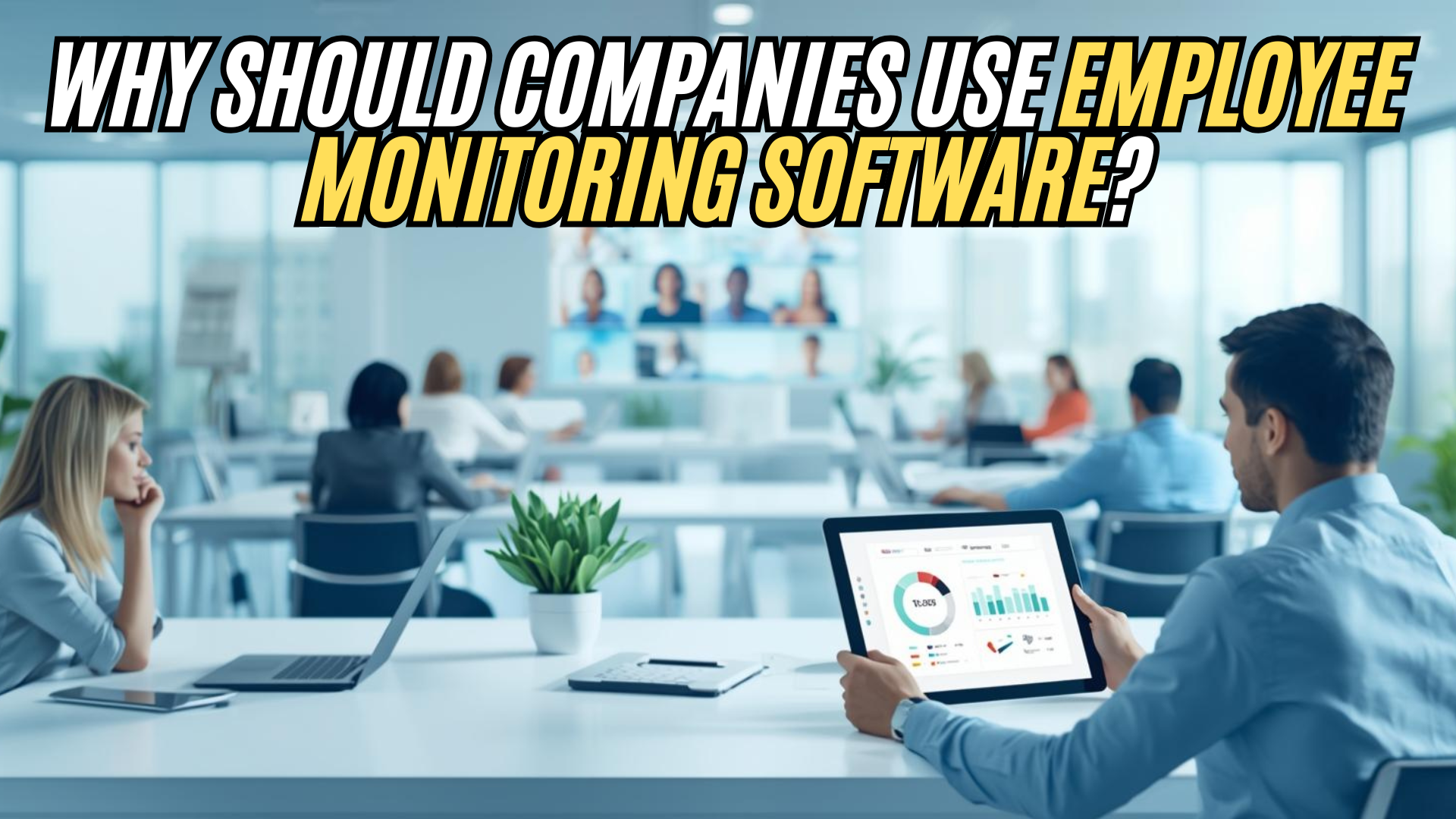Why Should Companies Use Employee Monitoring Software?

How can a company be sure its team is actually making the best use of their workday? With remote work, endless notifications, and shifting priorities, it’s easy for productivity to slip through the cracks. That’s where employee monitoring software comes in.
Rather than being a way to breathe down people’s necks, it works as a support system, helping managers understand how time is spent, protecting sensitive data, and keeping everyone accountable without constant check-ins.
The answer lies in its ability to combine productivity tracking, security, and transparency, offering employers and employees alike a balanced work environment. Let’s break down the reasons why businesses should consider using it and how it impacts overall success.
What Is Employee Monitoring Software?
Employee monitoring software is a digital tool that helps businesses track, manage, and analyze employee activities during work hours. It provides insights into:
- Time spent on tasks
- Applications and websites used
- Attendance and shift timings
- Productivity metrics
- Security and compliance risks
These features not only enhance organizational performance but also help in building a culture of accountability.
Why Should Companies Use Employee Monitoring Software?
The primary reason companies adopt this software is to bridge the gap between employee effort and business outcomes. Here are the key advantages:
1. Enhanced Productivity
By analyzing how employees spend their time, managers can identify inefficiencies and guide teams toward better workflows. This ensures that projects meet deadlines and resources are allocated effectively.
2. Improved Accountability
When employees know their work patterns are being tracked, they tend to stay more focused. It reduces time wastage and builds a sense of responsibility across teams.
3. Stronger Data Security
With cyber threats on the rise, employee monitoring policy helps prevent unauthorized data sharing or risky online activity. This is particularly valuable for industries handling sensitive information like finance or healthcare.
4. Better Remote Workforce Management

For hybrid and remote teams, this tool is indispensable. It ensures managers maintain visibility into work progress without micromanaging, promoting trust while keeping operations transparent.
5. Compliance and Legal Protection
Many industries require strict adherence to regulations. Monitoring tools can automatically document activities, offering a reliable audit trail in case of disputes or compliance checks.
How Does Employee Monitoring Software Benefit Employees?
Contrary to misconceptions, monitoring software is not just for employers it can benefit employees too.
- Recognition of effort: Accurate data highlights top performers and ensures recognition is based on measurable contributions.
- Balanced workloads: Tracking time spent on projects helps managers avoid overburdening specific team members. Implementing a clean desk policy alongside monitoring ensures employees maintain organized workspaces, which supports focus and efficiency.
- Clearer feedback: Employees receive objective insights into their performance, which supports professional growth.
Best Practices for Implementing Monitoring Software
 Introducing monitoring software requires balance. Here’s how companies can maximize its benefits without disrupting workplace culture:
Introducing monitoring software requires balance. Here’s how companies can maximize its benefits without disrupting workplace culture:
- Be Transparent – Inform employees about what is being tracked and why. Transparency builds trust.
- Set Clear Policies – Define acceptable use, privacy boundaries, and data handling practices.
- Focus on Outcomes – Use the tool to improve productivity, not to micromanage.
- Provide Training – Help employees understand how monitoring benefits them as well.
- Regularly Review Data – Use insights to improve workflows and employee well-being.
You can also watch : EmpMonitor: All-In-One Workforce Management Solution | Employee Monitoring Software
Wrapping Up
Employee monitoring software has evolved into a powerful solution that improves productivity, accountability, security, and compliance. For companies navigating hybrid and digital-first work environments, it provides clarity and efficiency. When used transparently and responsibly, it strengthens both organizational performance and employee trust.
FAQs
- Is employee monitoring software legal?
Yes, it is legal in most regions if companies are transparent and follow data privacy laws.
- Does it affect employee morale?
When implemented with clear communication and fairness, it often improves morale by recognizing contributions and ensuring balanced workloads.
- Can small businesses use it?
Absolutely. Small businesses can benefit just as much as large enterprises, especially for productivity tracking and workflow optimization.
- How is monitoring different from micromanaging?
Monitoring provides data-driven insights, while micromanaging involves excessive control. The key is using the software to empower rather than restrict.
- Art
- Causes
- Crafts
- Dance
- Drinks
- Film
- Fitness
- Food
- Παιχνίδια
- Gardening
- Health
- Κεντρική Σελίδα
- Literature
- Music
- Networking
- άλλο
- Party
- Religion
- Shopping
- Sports
- Theater
- Wellness




